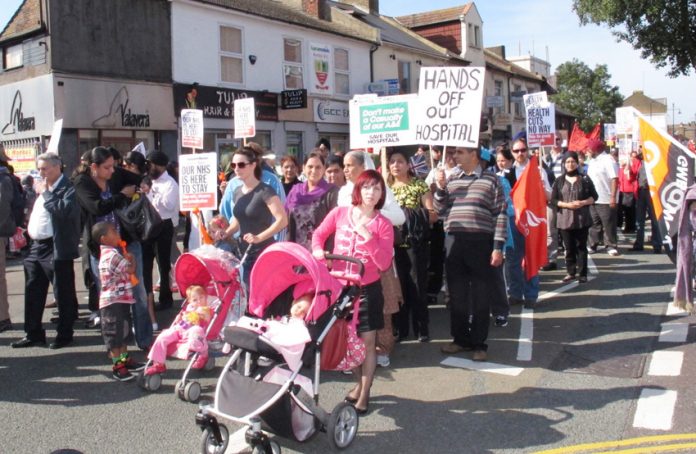
APPROVAL has been given for a second NHS District General Hospital to be put out to market to be privately run or taken over.
The decision has been taken by Midlands and East of England Strategic Health Authority Cluster, with the close scrutiny of the Department of Health (DH) and Jeremy Hunt, Secretary of State for Health.
The running of George Eliot Hospital NHS Trust in Nuneaton could either be franchised out, in the same way as Hinchingbrooke Hospital to private company Circle, or the hospital could be taken over completely.
A year-long tendering process has been launched with an advert in the Official Journal of the European Union and on the NHS Supply2Health website.
Top legal advice on the phrasing of this advert has come from the DH. So a new model of private takeover is possible, with a European dimension.
The pretext for this move is its small size, its financial circumstances and the fact that Foundation Trust status is not obtainable.
Bids are open to the public and private sector for a ‘strategic partner’ to ensure the hospital’s long-term future.
South Warwickshire Foundation Trust (FT) has made up a partnership with outsourcing company Serco, to put in a bid.
The trust’s chief executive said: ‘Serco will provide expertise in the bidding process as well as skills that will help us transform health services across Warwickshire.’
South Warwickshire FT currently runs the community services for the whole of Warwickshire.
Other bidders on the shortlist include Care UK, Circle, the Dudley Group FT and Burton Hospitals FT.
‘It is fairly clear that the DH and the commissioners plan to end George Eliot as a District General Hospital providing all acute services on site,’ commented the Health Service Journal in October.
The decision to remove inpatient paediatrics has already been taken, leaving only a short-stay paediatric unit. This affects the viability of maternity care.
The cluster board is also looking to cut the number of hospitals providing acute surgery, which could threaten the continuation of emergency surgery at Nuneaton.
Were this to happen the rundown and removal of the A&E would result, leading to the transformation of the hospital into a cold site (carrying out elective surgery) only.
At the end of August, George Eliot had a £2.5m deficit on an annual turnover of £117m. But every year, the commissioners reduce the payments-by-results tariffs, and annual government ‘efficiency savings’ erode funding.
The big hospital in the area is University Hospitals of Coventry and Warwick which has to find 16 per cent of its £485m annual turnover to service its £410m PFI building up to 2042. This is likely to be the recipient of any acute services removed from Nuneaton.